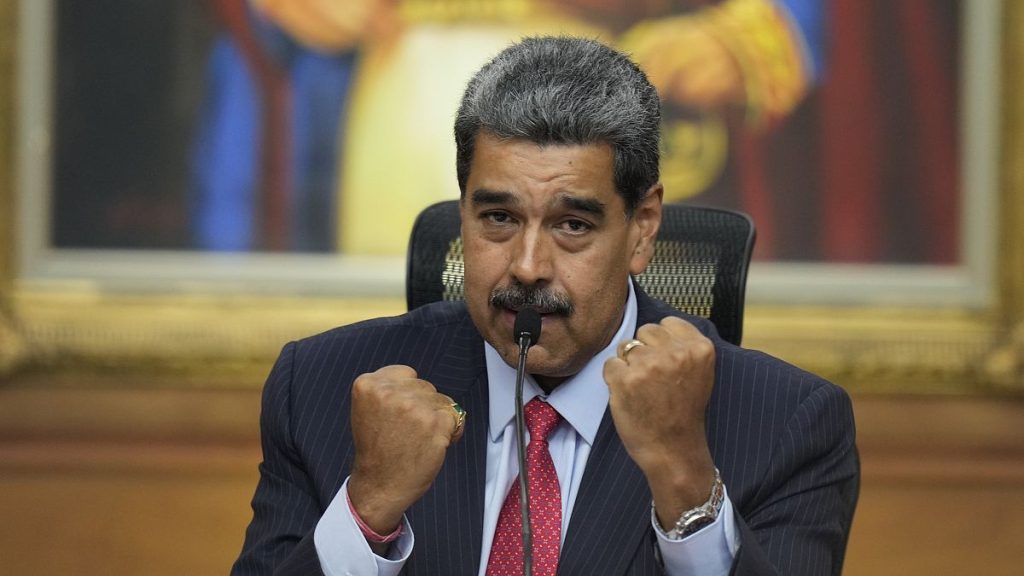Nicolás Maduro’s impending third term as president of Venezuela has ignited a volatile political landscape, marked by international condemnation, internal dissent, and a looming showdown between the incumbent regime and the opposition. Maduro’s July election victory, shrouded in controversy due to irregularities and a lack of transparency, has been widely rejected by the opposition and international observers. The refusal of the Maduro-aligned National Electoral Council to publish detailed vote tallies, coupled with their swift declaration of Maduro’s win, fueled suspicions of manipulation. This has further exacerbated the existing political tensions and set the stage for potential unrest as Maduro prepares for his inauguration.
The opposition, led by the exiled María Corina Machado, has called for widespread protests to coincide with Maduro’s inauguration, aiming to demonstrate the lack of popular support for his regime. Machado, who herself was barred from contesting the election, has become a vocal critic of Maduro’s authoritarian rule. Her calls for resistance reflect the deep dissatisfaction within segments of Venezuelan society, weary of economic hardship, political repression, and the erosion of democratic norms. This public defiance, however, carries significant risks in a country where the government has repeatedly used force to quell dissent.
The controversy surrounding the July election centers around the opaque vote counting process and the conflicting narratives presented by the government and the opposition. While the official results claimed a victory for Maduro, the opposition presented data from a significant portion of electronic voting machines, indicating a landslide win for their candidate, Edmundo González. The credibility of the opposition’s claims was bolstered by the US-based Carter Center, a respected election observation organization, which validated the authenticity of the opposition’s tallies. This discrepancy between official results and independent observations underscores the lack of transparency and trust in the electoral process.
Edmundo González, a former diplomat who emerged as the opposition’s presidential candidate after Machado’s disqualification, represents a beacon of hope for many Venezuelans seeking an end to Maduro’s rule. His campaign focused on addressing the severe economic crisis that has gripped the nation, leading to widespread poverty, hyperinflation, and a mass exodus of citizens. Despite claims of electoral victory, González was forced into exile following an arrest warrant issued by the Maduro regime. From Spain, he continues to advocate for the restoration of democracy in Venezuela, accepting international recognition, such as the Sakharov Prize, on behalf of his beleaguered nation.
González’s acceptance of the Sakharov Prize, awarded by the European Union for contributions to human rights and freedom of thought, highlights the international community’s growing concern over the situation in Venezuela. His declaration of intent to return to Venezuela and assume the presidency on January 10th, despite the threat of arrest, further underscores his resolve. However, the feasibility of such a move remains uncertain given the Maduro regime’s firm grip on power and its demonstrated willingness to suppress dissent. The regime has already issued a substantial reward for information leading to González’s capture, signaling its determination to prevent his return.
The international community’s response to Maduro’s controversial re-election has been largely critical, with many countries questioning the legitimacy of the process and expressing concerns about the ongoing erosion of democratic institutions in Venezuela. The United States and numerous European Union members have openly condemned Maduro’s authoritarian tactics and called for a return to democratic governance. Argentina’s President, Javier Milei, has shown explicit support for González, further isolating the Maduro regime on the international stage. González’s international tour, including meetings with various leaders and a potential meeting with outgoing US President Joe Biden, aims to garner further international support for his cause and exert pressure on the Maduro regime. The clash between Maduro’s inauguration and Machado’s call for protests sets the stage for a crucial moment in Venezuela’s political crisis, with the potential for significant escalation. The regime’s response to the protests will be closely watched by the international community, as it could further exacerbate the existing tensions and deepen the country’s political and economic woes.














